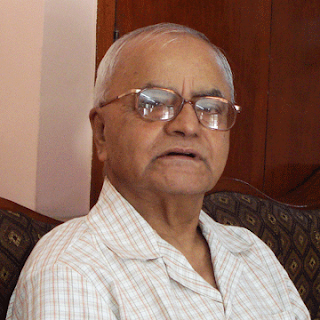Columns
Elitism and change
Only the most abused forms of democracy are in practice in much of South Asia.
Lok Raj Baral
Elitism is not only difficult to comprehend in social studies but also equally paradoxical and ubiquitous in the actual exercise of power. As a concept, it indicates a limited group of people belonging to a variety of areas that wield, dominate and influence power and policies. So even in a democracy, it has become a self-contradictory term as democracy demands equal participation. The emphasis on making democracy more participatory to enhance the empowerment of the weaker and marginalised sections becomes redundant if the elitist nature of politics remains unchanged. Surprisingly, however, even democratic governance worldwide is increasingly becoming elitist that confines power and privileges to a narrow circle of people.
Reading Sanjaya Baru's new book India's Power Elite: Class, Caste and a Cultural Revolution (Penguin, Gurgaon, 2021) I was naturally nostalgic about my academic years at the School of International Studies, Jawaharlal Nehru University in the early 1970s, where I came into contact with C Wright Mills' book which is the greatest source of information about elitism to Sanjaya Baru. I knew Baru as a journalist when he came to see me at the Nepal Embassy in 1996. He was then associated with The Times of India group. His first book, The Accidental Prime Minister, based on his association with former Indian prime minister Manmohan Singh, gives enough clues about the political power in India, exercised by a small clique forming it as an extra-constitutional power centre.
Power brokers
Such a narrow circle is further extended to make elites whose clout in politics is increasingly becoming complex and inevitable as if they have hijacked governance. Politicians become a mere cipher for the extra-constitutional power brokers without whose support political parties cannot face costly elections. The role of business houses was well noted during the independence movement as the Indian Congress leaders were able to rope in some business houses such as Tata and Birla for the struggle. But it had no conflict of interest due to the uncertainty of achieving political power immediately. However, the role of industrial and other business elites and contractors increased in the post-independence era as parties needed financiers for electoral gains. And the license and permit raj dominated Indian politics.
With the decline of the Indian National Congress, the Bharatiya Janata Party (BJP) seems to be financially comfortable as business lobbies prefer the winner, not the loser. With no signs of the Congress party re-emerging as a dominant force in Indian electoral politics today, the BJP still faces no challenge from any national party despite its declining influence in most states. Nevertheless, the BJP's political space is being shrunk by regional parties that seem to be working relatively independently of the centre. West Bengal, Tamil Nadu, Telangana, Kerala, Punjab and Maharashtra are such states that have been able to check the rise of the BJP. Thus, the regional political elites cannot be easily written off by the central power elites. Baru has dealt with this aspect along with many other groups and institutions that have emerged as significant factors in power politics. It also means a partial shift of power to states, thus redefining the contours of Indian federal politics. The Lutyens elites alone, who dwell in the poshest part of New Delhi that is close to the power centre, do not exert power as the business, bureaucratic, military and intellectual elites and the media have access to power.
In traditional and feudal societies, elite groups wield power based on social dominance characterised by caste, lands, religious discrimination and other forms of socio-economic hierarchies. The Brahmin and Chhetri belong to the top caste hierarchies, making them dominant in politics and the economic domains. In India and Nepal, such higher caste groups continue to take a large share of the political, administrative and security sectors despite long exercises in "democratic governance". Only the most abused forms of democracy are in practice in much of South Asia, where "the hierarchical nature of the caste system has been the social foundation of elitism". The continuity of the caste structure is also related to class divisions as the upper castes who have had access to power and social status continue to be the beneficiaries of power and privileges.
Contrasted with the situation in India, in Nepal's remote areas of the hills and Madhes or even in a cosmopolitan city like Kathmandu, superstition and blind faith kill scientific knowledge. Educated urban elites also submit to unsavoury social rituals. The degradation of women in Nepal, particularly related to the segregation during menstruation in the far western region and other forms of exploitation, does not help change society. Although education plays a significant role in changing social discrimination, it seems ineffective in creating a new generation of rebellious youth to bring social and political awareness against caste, gender discrimination, and economic disparity.
Nepal as a model
Compared to India, Nepal could present itself as a model in South Asia because of its size and adaptability to change without being tempted, for what Indian sociologist MN Srinivas terms "sanskritisation", that is, trends of upward mobility. This process transforms people from the lower hierarchy to upper caste groups without changing the social order. Notwithstanding the numerous flaws of Indian democracy, Baru drops optimistic notes in his final chapter, calling it a changing balance of power. The emergence of regional powers has given a new dimension to the Indian federal structure besides creating regional elites who seem to be more assertive vis-à-vis the centre that had been adopting more coercive roles for influencing the politics of the states. Now the state leaders can no longer be taken for granted by the central power elites.
Moreover, the traditional power wielders have been replaced in some states that have eroded the BJP's image as the dominant party. The rise of Dalits, backward communities (BC) and other backward communities (OBC), in addition to a strong feeling of regionalism and their impacts on the centre, is noteworthy. Nevertheless, with the rise of populist ideology pursued by the present ruling elites, the fundamentals of modern democratic principles are under pressure. As Baru observes, "All populist ideologies blunt the rough edges of reality." For Baru, people's acquiescence to gradualness "contributes to the resilience of the power elite". And such gradualness is the beauty of Indian democracy.




 11.12°C Kathmandu
11.12°C Kathmandu















